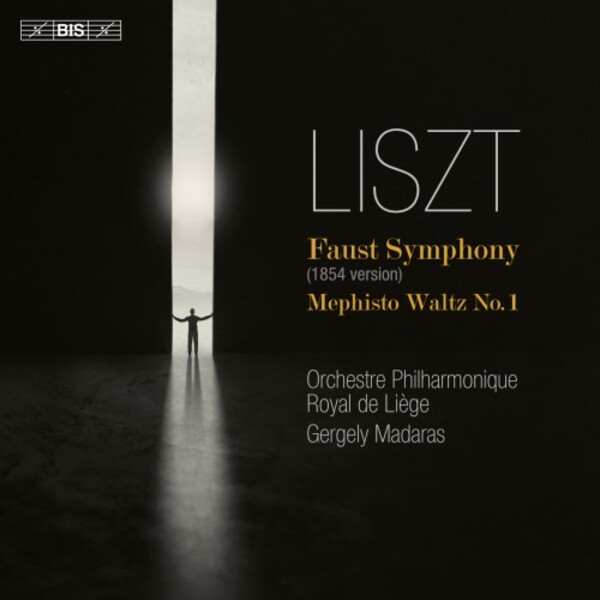LISZT A Faust Symphonie. Mephisto Waltz No 1 (Madaras)
View record and artist detailsRecord and Artist Details
Genre:
Orchestral
Label: BIS
Magazine Review Date: 10/2024
Media Format: Super Audio CD
Media Runtime: 80
Mastering:
DDD
Catalogue Number: BIS2510

Tracks:
| Composition | Artist Credit |
|---|---|
| (A) Faust Symphony |
Franz Liszt, Composer
Gergely Madaras, Conductor Liège Philharmonic Orchestra |
| Mephisto Waltz (Zwei Episoden aus Lenaus Faust) |
Franz Liszt, Composer
Gergely Madaras, Conductor Liège Philharmonic Orchestra |
Author: Peter J Rabinowitz
Hard on the heels of Kirill Karabits’s high-powered Faust Symphony (Audite, 10/23) comes Gergely Madaras’s version from Liège, equally compelling but substantially different in temperament. Offering momentum rather than weight, lucidity rather than textural richness, Madaras plays down the music’s anguish in favour of its hyperactivity: its nervous rhythms (heightened by the superb articulation), its metrical irregularities and its use of counterpoint to keep us off balance. Emotionally, his approach heightens the music’s disorientating mood swings; technically, it accentuates its breaking of convention in terms of rhythm, structure and especially colour.
Liszt’s palette here is much more refined, less garish, than the shocking sounds produced by Berlioz, the only contemporary other than Wagner who could challenge him as a colourist – and the orchestra revels in this timbral ingenuity. Note, for example, their handling of the subtly shifting colours of the opening pages or, better yet, of the proto-impressionistic shimmering throughout the ‘Gretchen’ movement. Ensemble is exceptional as well, as is the ability to keep the flow through the music’s unstable metres. There have been plenty of stellar recordings of this work, including those by Horenstein (scrappy but feral, Vox, 2/60), Beecham (Warner, 2/60) and especially Bernstein, in two radically different readings, from New York (Sony, 11/64) and Boston, (DG, 4/78). But even in that company, Madaras holds his own. It’s all realistically captured by BIS’s engineers, and as a bonus we get a crackling performance of the first Mephisto Waltz.
There’s one significant caveat. The performance uses what’s advertised as the ‘original 1854 edition’ of the score, but that’s misleading. While Liszt did first draft the work in 1854, he didn’t produce a performable edition at the time, and there’s debate about his intentions for finalising the manuscript that he did produce. When he got around to polishing the score in 1857, he added a magnificent apotheosis with tenor and male chorus, which is normally included when the work is performed. But ever the pragmatist, he offered the option of using a shorter, purely orchestral conclusion for those wishing to avoid the trouble of hiring singers.
That cut-rate ending is what we get here. Abrupt and comparatively drab, it’s a poor substitute for the fuller text. Thus, strong as the performance is, this recording can’t serve as your sole representation of the work. As a supplement to one of the choral versions, though, it’s warmly welcomed.
Discover the world's largest classical music catalogue with Presto Music.

Gramophone Digital Club
- Digital Edition
- Digital Archive
- Reviews Database
- Full website access
From £8.75 / month
Subscribe
Gramophone Full Club
- Print Edition
- Digital Edition
- Digital Archive
- Reviews Database
- Full website access
From £11.00 / month
Subscribe
If you are a library, university or other organisation that would be interested in an institutional subscription to Gramophone please click here for further information.




